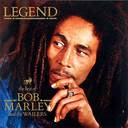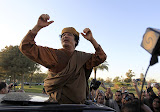By Bayo Olupohunda
 |
| Bayo |
Hate crimes against Nigerians living in South Africa are nothing new. Since the dismantling of apartheid, Nigerians and other African nationals living in the country of the Madiba have been the subjects of coordinated xenophobic violence reminiscent of what black South Africans themselves suffered during the apartheid era.
The story of this recent violence was not different from previous attacks. Reports of spontaneous assault by some South African members of Port Nolloth community were said to have targeted the Nigerian community living in the area.
They were reportedly chased out of their homes, their property looted and their shops burnt. The attackers have always accused the Nigerians of dealing in drugs. But the Nigerian community in South Africa has denied the allegation. They in turn have accused the South Africans of envy. They claimed South Africans have always felt threatened by the business success of Nigerians living in the country. Frequent attacks on Nigeria in South Africa have often grabbed media attention. Strangely, the South African government has uncharacteristically condemned the latest incident as xenophobia. Since 2006, hate crime has been on the increase. It peaked in 2008 with the widespread violence that targeted foreign nationals.
Apart from the poverty of the black population in South Africa, intolerance has also become one of the enduring legacies of the apartheid era - a system that brutally subjugated the blacks and treated them as second class citizens in their own country. How ironical it is then that South Africans would now turn around to subject their fellow black Africans to the same treatment? And to think it was the same Africans that supported them to fight apartheid leaves a sour taste in the mouth. Many of the freedom fighters like Nelson Mandela also sought refuge in several countries on the continent. Prior to 1994, immigrants from elsewhere in Africa faced discrimination and even violence; though much of that risk stemmed from the institutionalised racism of the time. After 1994 and following democratisation, and contrary to expectations, the incidence of xenophobia increased. Between 2007 and 2008, at least 67 people died of hate crimes. In 2008, a series of riots left 62 people dead in an attack apparently motivated by xenophobia. It has to be noted, however, that African immigrants have suffered racist attacks, with Nigerian nationals being at the centre of hate-filled violence and arson.
According to a 1998 Human Rights Watch report, immigrants from Malawi, Zimbabwe and Mozambique living in the Alexandra township near Johannesburg were physically assaulted over a period of several weeks in 1995, as armed gangs identified suspected migrants and marched them to the police station in an attempt to "clean the township of foreigners.” The campaigners, known as “Buyelekhaya” (go back home), blamed foreigners for crime, unemployment and sexual attacks. Attacks on foreign nationals increased markedly in late 2007. The most severe incident occurred in 2008 when a series of riots started in the township of Alexandra. Locals attacked migrants from Mozambique, Malawi and Zimbabwe, and Nigeria. In recent years, tales of xenophobic attacks on Nigerians living in South Africa have left compatriots at home in shock. There have also been reported cases of harassment of Nigerian travellers arriving at the Oliver Thambo Airport. One celebrated case of disrespect was the treatment of Africa's first Nobel winner, Prof. Wole Soyinka. In 2005, Soyinka was denied entry into South Africa. It took the last minute intervention of Mandela's wife, Graca Machel, to admit the Nobel Laureate into the country. Soyinka's trip to South Africa which was in response to an invitation to deliver a lecture in honour of Mandela drew national and international focus to the country, both because of Mandela, whose birthday it was and Soyinka who was the guest speaker. The Professor was thus understandably peeved at his treatment. In a statement at the time, he lamented that the attitude of South African immigration "is not my idea of decent conduct towards one who is not an unknown to South African officials, has made several 'regularised' visits in the past, and has indeed been invited to the country on this occasion to do honour to the founding father of the modern South African nation."
Many Nigerians have told tales of woes about how South African immigration officials treat them both in South Africa and in their embassy in Lagos. The plights of visa applicants at the South African embassy paint a sordid picture of the xenophobic tendencies of an average South African. During the 2010 World Cup, many Nigerians who sought genuine reasons to visit the country were denied entry for no reason. There were reports of officials hurling racist slurs at visa applicants. In 2012, the government of South Africa denied 125 Nigerians travellers entry into its country. The Nigerian travellers were prevented from entering South Africa on the grounds that they had "invalid" yellow fever vaccination cards. But many of the travellers who were frequent travellers said they had used the same cards in previous travels. The Nigerian government retaliated by denying entry to some South African travellers. A diplomatic row was averted when the South African government apologised to the Nigerian government.
Nigerians' contact with South Africa began shortly after the end of apartheid in the early 1990s. Economic difficulties at home and the search for opportunities saw Nigerians seek greener pastures in South Africa. At the last count, Nigerians form the bulk of immigrants in that country. Many successful businesses are said to be owned by Nigerians. An average Nigerian in South Africa does not discriminate in their choice of jobs. The influx of Nigerians and their penchant to dominate appear to have angered the average South African. They have accused Nigerians and other immigrants of taking their jobs. They have also blamed Nigerians for dealing in drugs and other crimes. But many of these allegations against Nigerians and other immigrants have not been substantiated.
The South African government has also indirectly promoted and encouraged its citizens into believing that immigrants are responsible for unemployment and crimes. For example, South Africa’s borders have been remilitarised. According to Christopher McMichael: “This shared state-corporate project of building up a 'fortress South Africa' also reveals a deeply entrenched seam of xenophobia, in which undocumented migrants and refugees from African countries are painted as a security risk akin to terrorism and organised crime. Parliamentary discussions on border security are rife with claims that foreign nationals are attempting to drain social grants and economic opportunities from citizens. The packaging of illegal immigration as a national security threat, which often relies on unsubstantiated claims about the inherent criminality of foreign nationals, provides an official gloss on deeply entrenched governmental xenophobia, in which African immigrants are targets for regular harassment, rounding up and extortion by the police. This normalisation of immigrants as figures of resentment may also fuel outbreaks of xenophobic violence''.
Nigerians' rights to live without fear must be protected. But those who are found to break the laws should be prosecuted. After all, there are many thriving South African businesses in Nigeria. Should we then accuse them of taking our jobs? Nigerians have been tolerant of foreigners. Other countries should reciprocate our openness. Xenophobic attacks on fellow Africans are against the spirit of African Brotherhood. The Federal Government must protect Nigerians in whatever parts of the world they find themselves.
















No comments:
Post a Comment